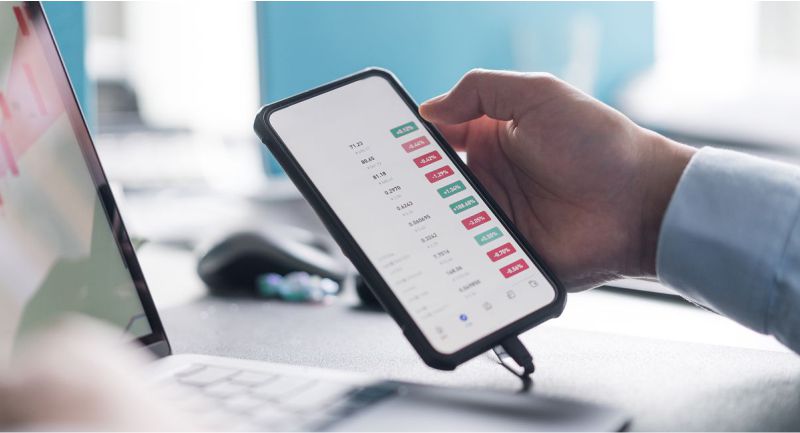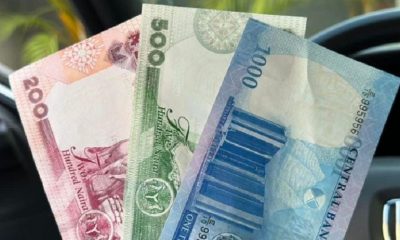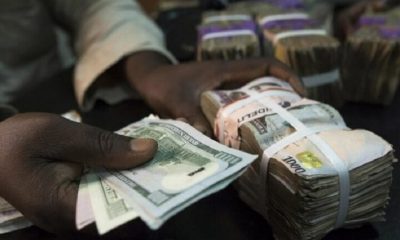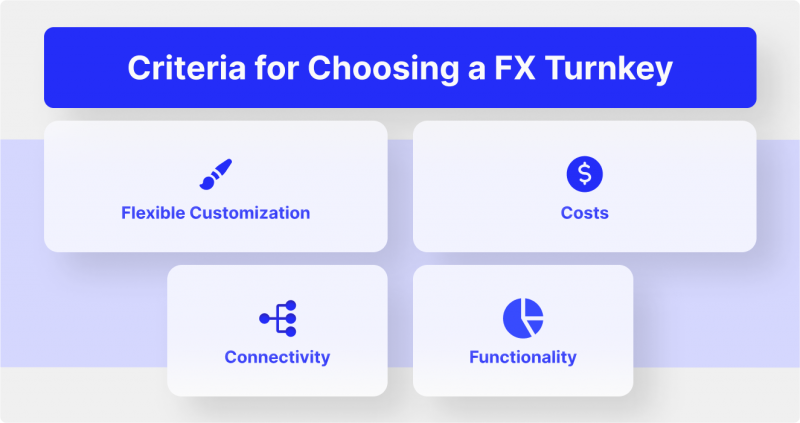Economy
Is it Possible that Your Forex Broker is Fraudulent?

When you are interested in trading foreign exchange, it is essential to choose brokers that are dependable and viable, and it is prudent to steer clear of those who are not.
Before putting a significant amount of money into a broker’s account, there is a sequence of actions that need to be completed first. This is necessary so that we can differentiate between trustworthy brokers and those that engage in shady business practices.
Trading is difficult enough on its own, but when a broker employs methods that work against the trader, it may make it extremely difficult, if not impossible, to make a profit. It is, therefore, useful to regularly check the fake forex brokers list online.
How to spot if your broker is a fraud
Regular broker mistakes
There are times when the broker is to blame for a loss. When a broker makes an effort to increase their trading commissions at the expense of their client, this situation may arise.
There have been allegations that certain brokers moved quoted rates arbitrarily in order to trigger stop orders when the rates offered by other brokers had not moved to the same price.
For the benefit of traders, this kind of event is an anomaly and is extremely unlikely to occur again. It is important to keep in mind that trading is not often a game with no winners or losers and that the primary way brokers generate money is through greater trade volumes.
To summarize, it is in the best interest of brokers to have long-term clients who trade frequently and, as a result, maintain capital or generate a profit. This is because brokers can then capitalize on these clients’ continued business, and brokers who are making innocent mistakes may not appear on a fake forex brokers list.
Lack of segregated accounts
Scam brokers will frequently use a single bank account to hold both the funds belonging to their customers and the money necessary to run their businesses.
This indicates that when the funds in their accounts are decreasing, they will be more likely to seek ways to improve operations by utilizing money from their customers as a source of funding.
This is an exceedingly questionable method of conducting business, and in the event that the broker is unable to fulfil their monetary commitments, your funds will be combined with theirs and may even be subject to seizure by their debtors.
Read more: Forex Brokers in Nigeria
Fake bonus offerings
Brokers that are licensed and regulated are required to guarantee that the bonuses and promotions they offer adhere to regulatory rules and do not “trap” the trader.
However, some dishonest brokers attract investors with promotions that are misleading and have terms and conditions that are so stringent or downright unreachable. These brokers are known as “pump and dump” brokers.
This indicates that their investors will almost certainly finish up losing the trading capital they invested in them before they get the opportunity to take any rewards. If something seems too good to be true, there is a strong chance that it is.
Related Post: Forex Basics for Beginners
Manipulated prices
This is by far the most typical con that fraudulent brokers pull off. There are some brokers who manipulate their trading interfaces in such a way that it is always to the traders’ disadvantage.
This might manifest itself as negative slippage, which occurs when entry and exit orders are executed at prices that are unfavourable to the trade.
For example, a buy order might be executed at a somewhat higher price, which would cut into any potential future gains from the trade, if there would even be any at all.
Economy
Stronger Taxpayer Confidence, Others Should Determine Tax Reform Success—Tegbe

By Modupe Gbadeyanka
The chairman of the National Tax Policy Implementation Committee (NTPIC), Mr Joseph Tegbe, has tasked the Nigeria Revenue Service (NRS) to measure the success of the new tax laws by higher voluntary compliance rates, lower administrative costs, fewer disputes, faster resolution cycles, and stronger taxpayer confidence.
Speaking at the 2026 Leadership Retreat of the agency, Mr Tegbe said, “Sustainable revenue performance is built on trust and efficiency, not enforcement intensity,” emphasising that the legitimacy and predictability of the system are more critical than punitive measures.
He underscored that the country’s tax reform journey is at a critical juncture where effective implementation will determine long-term fiscal outcomes.
The NTPIC chief stressed that tax policy must serve as an enabler of governance, and should embody simplicity, equity, predictability, and administrability at scale.
These principles, he explained, foster voluntary compliance, reduce operational friction, and strengthen investor confidence. He warned that ad-hoc adjustments or policy drift could undermine reform momentum, unsettle businesses, and deter investment, which thrives on predictable rules rather than shifting announcements. Structured sequencing, clear transition mechanisms, and continuous feedback between policymakers and administrators are therefore critical to sustaining reform credibility.
Mr Tegbe further argued that revenue reform cannot succeed in isolation. Achieving sustainable gains requires a whole-of-government approach, leveraging robust taxpayer identification systems, integrated financial data, efficient dispute resolution, and harmonised coordination across federal and sub-national levels. This approach, he said, reduces leakages, eliminates multiple taxation, and reinforces confidence in the system.
He noted that the passage of four new tax laws marks only the beginning of a broader reform agenda, describing the initiative as a systemic recalibration of Nigeria’s fiscal architecture, rather than a routine policy update.
He further asserted that the true measure of success will be the credibility of implementation, not the design of the laws themselves.
The NRS, he noted, functions as the nation’s “Revenue System Integrator,” with outcomes reflecting the strength of an interconnected ecosystem that encompasses policy clarity, enforcement consistency, digital infrastructure, dispute resolution efficiency, and intergovernmental coordination.
Economy
NUPENG Seeks Clarity on New Oil, Gas Executive Order

By Adedapo Adesanya
The National Union of Natural and Gas Workers (NUPENG) has expressed deep concern over the Executive Order by President Bola Tinubu mandating the Nigerian National Petroleum Company (NNPC) Limited to remit directly to the federation account.
In a statement signed by its president, Mr William Akporeha, over the weekend in Lagos, the union noted that the absence of detailed public engagement had naturally generated tension within the sector and heightened restiveness among workers, who are anxious to know how the new directive may affect their employment, welfare and job security, especially as it affects NNPC and other major operations in the oil and gas sector.
It pointed out that the industry remained the backbone of Nigeria’s economy, contributing significantly to national revenue, foreign exchange earnings, and employment.
The NUPENG president affirmed that any policy shift, particularly one introduced through an Executive Order, has far-reaching consequences for regulatory frameworks, Investment decisions, operational standards, and labour relations within the sector.
According to him, “there is an urgent need for clarity on the scope and objectives of the Executive Order -What precise reforms or adjustments does it introduce? “Its implications for the Petroleum Industry Act -Does the Order amend, interpret, or expand existing provisions under PIA?
“Impact on workers and existing labour agreements-Will it affect job security, conditions of service, Collective Bargaining agreements or ongoing restructuring processes within the industry? “Effects on indigenous participation and local content development -How will it affect Nigerian companies and employment opportunities for citizens?”
He warned that without proper consultation and explanation, misinterpretations of the Executive Order may spread across the industry, potentially destabilising operations and undermining industrial harmony that stakeholders have worked hard to sustain.
“Though our union remains committed to constructive engagement, national development and stability of the oil and gas sector, however, we are duty-bound and constitutionally bound to protect the rights and welfare and job security of our members whose livelihoods depend on a clear, fair and predictable policy framework,” Mr Akporeha further stated.
Economy
Uzoka-Anite Warns Against Inflation Risks from Oil, Gas Earnings Surge

By Adedapo Adesanya
The Minister of State for Finance and chairman of the Federation Account Allocation Committee (FAAC), Mrs Doris Uzoka-Anite, has cautioned that a projected surge in oil and gas revenues following President Bola Tinubu’s latest executive order could trigger inflationary pressures and exchange rate volatility if not carefully managed.
She said that the recent executive order mandating the direct remittance of certain oil sector revenues to the federation account would provide regulatory clarity and significantly strengthen revenues accruing to the federation account, but warned that sudden liquidity injections into the economy may complicate monetary policy coordination with the Central Bank of Nigeria and erode the real value of allocations to federal, state and local governments.
While addressing members of FAAC in Abuja, Mrs Uzoka-Anite commended President Tinubu on the order, describing the development as a structural fiscal correction aimed at restoring constitutional discipline to petroleum revenue management and enhancing distributable income across the three tiers of government.
She said that the revenue outlook was improving due to ongoing structural reforms introduced by the Federal Government.
According to her, the newly implemented tax reform measures are broadening the tax base, improving compliance and enhancing administrative efficiency.
“Also, the executive order signed by Mr President on February 13 is reinforcing revenue discipline in the oil and gas sector and reducing leakages,” she said.
The minister said that the order suspends the 30 per cent allocation to the Frontier Exploration Fund (FEF) and suspends the 30 per cent management fee on oil and gas profit payable to NNPC Limited.
She said that the order also directed that gas flare penalties be paid into the federation account, and mandated full remittance of petroleum revenues without unconstitutional deductions.
Mrs Uzoka-Anite said that the reform marks a shift from a retention-based oil revenue model to a gross remittance, federation-first model.
“The implications for FAAC are very significant; more oil and gas profit will now flow directly into the federation account.
“Gas flare penalties will become distributable revenue, and previously retained management fees will no longer reduce remittable inflows,” she said.
She said that the reforms were expected to result in higher monthly gross inflows into the federation account, and increased allocations to federal, state and local governments.
The minister said that a retrospective audit of the FFF, the Midstream and Downstream Gas Infrastructure, was due, and NNPC management fee deductions could lead to recoveries that may provide a one-off fiscal boost.
She welcomed the improved revenue outlook and cautioned against the risks associated with sudden liquidity injections.
“Experience shows that when revenues rise sharply and are distributed fully and immediately, large liquidity injections can increase inflationary pressures, complicate monetary management and reduce the real purchasing power of allocations,” she said.
She said that excess aggregate demand, exchange rate pressure, asset price distortions and inflationary risks could arise if increased inflows were not carefully managed.
Mrs Uzoka-Anite said that to mitigate such risks, she proposed phased disbursement of one-off recoveries.
She suggested that retrospective recoveries be staggered rather than injected into the economy in bulk, with a portion temporarily warehoused in a stabilisation buffer.
She also recommended strengthening the excess crude and stabilisation buffer mechanism to channel part of incremental inflows into a fiscal stabilisation window.
“This could offset revenue shortfalls in weaker months and reduce procyclicality in spending.
According to her, enhanced coordination with the CBN would be pursued to align fiscal injections with liquidity management tools and support open market operations where necessary.
Mrs Uzoka-Anite urged states and federal Ministries, Departments and Agencies (MDAs) to prioritise capital expenditure over recurrent expenditure.
She called for investment in infrastructure, agriculture, energy and other productive sectors, and avoid unsustainable wage or consumption spikes.
“Productive spending expands supply capacity and mitigates inflation,” she said.
She also announced plans to introduce monthly revenue transparency dashboards, production-to-remittance reconciliation reporting, and clear reporting of incremental inflows arising from tax reforms and the executive order.
The junior finance minister said that the reforms presented an opportunity to deepen fiscal federalism, enhance distributable revenue, restore constitutional clarity and strengthen trust among tiers of government.
She also advised that increased revenue must not translate into fiscal complacency.
“We must resist the temptation to treat incremental inflows as permanent windfalls. We should reduce debt burdens, clear arrears responsibly, build buffers and invest in growth-enhancing sectors,” she said.
-

 Feature/OPED6 years ago
Feature/OPED6 years agoDavos was Different this year
-
Travel/Tourism10 years ago
Lagos Seals Western Lodge Hotel In Ikorodu
-

 Showbiz3 years ago
Showbiz3 years agoEstranged Lover Releases Videos of Empress Njamah Bathing
-

 Banking8 years ago
Banking8 years agoSort Codes of GTBank Branches in Nigeria
-

 Economy3 years ago
Economy3 years agoSubsidy Removal: CNG at N130 Per Litre Cheaper Than Petrol—IPMAN
-

 Banking3 years ago
Banking3 years agoSort Codes of UBA Branches in Nigeria
-

 Banking3 years ago
Banking3 years agoFirst Bank Announces Planned Downtime
-

 Sports3 years ago
Sports3 years agoHighest Paid Nigerian Footballer – How Much Do Nigerian Footballers Earn





















